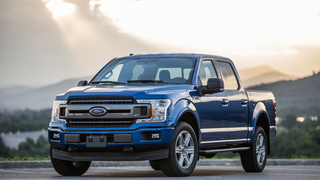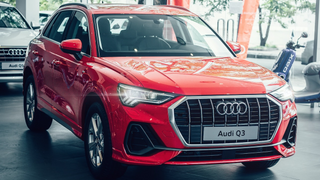Depreciation is the reduction in the value of a car over time as a result of factors such as age, mileage, desirability, and wear and tear.
No matter what car you buy, they all lose their value; new cars especially tend to depreciate a lot quicker than their used counterparts.
Within the first year of having a new car, its value could drop between 15-35% and can even exceed 50% after three years.
Do you know your car's current value based on its depreciation? Sign up to Car Credible to find out for free today.
It's important to understand that this will happen before buying a new car, so you aren't shocked if you do try and sell it at some point in the future.
Some car makes and models can depreciate quicker than others, but generally speaking, it's the various other factors that lose the car's value.
Car reputation
Cars are very much like fashion in the way that their popularity can rapidly increase and decline within a few years.
The reliability of car brands plays a critical part in this instance as people are more likely to buy a new car from a reputable brand that has been producing the very best cars for years.
If a car is reliable and desirable in equal measure, then the chances are that it could slow down its depreciation.

Fuel usage
Although big 4x4s like the Range Rover are great to look at and smooth to drive, the amount of fuel it guzzles makes it more expensive to keep on the road, and therefore less easy to sell at a higher cost.
Especially as plans to go greener and turn to electric models are rapidly progressing, if you buy a car like this, expect it to lose value quickly.
It's not the worst scenario if you are the buyer as you may be able to get a good deal. But just be mindful that it'll be worth even less if you try to sell it on again.
Mileage
If you drive your car long distances for work or travel, then there's a high chance that it will lose its value quicker than if you were to not use it as often.
This is because people will be less inclined to buy a car with more miles on the clock than one that is used far less.
General wear and tear
All cars will experience fair wear and tear over time, regardless of their cost, make or model.
This is aimed more at those buying a previously used car, as the wear and tear will be more apparent.
It's certainly worth doing some research and asking questions when buying a second-hand vehicle, to get a better understanding of what it has sustained over time.
Ownership
The number of people that have previously owned the car will also cause its value to considerably drop.
It's a similar situation to the mileage - the fewer miles driven, the more valuable it is. In this situation, the fewer previous owners, the more valuable it is.
Service history
If the service history of the car reads that it required a lot of work in a previous life, then it will be a lot cheaper to buy than something with a more pristine write-up.
If buying a used car, certainly get an idea of what this looks like so you don't end up buying something better suited for the scrap yard.
It's difficult to pinpoint exactly what reduces depreciation, but there are a couple of factors that you can follow in order to stunt it slightly.

Respect your car
This is easier said than done as there may be times when you are involved in a traffic collision or accidentally scrape your car while reversing, for example.
But if you can keep your car in as mint condition as possible, you'll have every chance of retaining its value.
This is the case for both the exterior and interior. Just because the outside is in perfect condition, nobody is going to want to buy your car if the inside is scratched and the seats have rips in them.
Modifications
If you want to spice your car up a bit, it can be so tempting to add a spoiler or some new rims. But this can negatively impact the car's value.
This is because not everyone is into what you are, and you are therefore limiting the number of people who potentially might want to buy your car in future.
If you know you are going to keep your car for a very long time, then great, crack on with all the work you want to do. But if you plan on switching your car after two or three years, try to avoid making any changes, or it could end up being very costly for you.
Car colour
Similar to the modifications, if you want a bright pink coloured car, then good for you. However, this isn't to everyone's taste, and when you go to sell in future, you may be limited by who wants to buy it from you.
Neutral colours such as black, white, grey, and silver are a much better option and give you a stronger chance of moving your car on later down the line.
/volkswagen-showroom.jpg)


/tesla-model-3.jpg)
/buying-a-diesel-car-2023.jpg)
/deposit-when-car-buying.jpg)